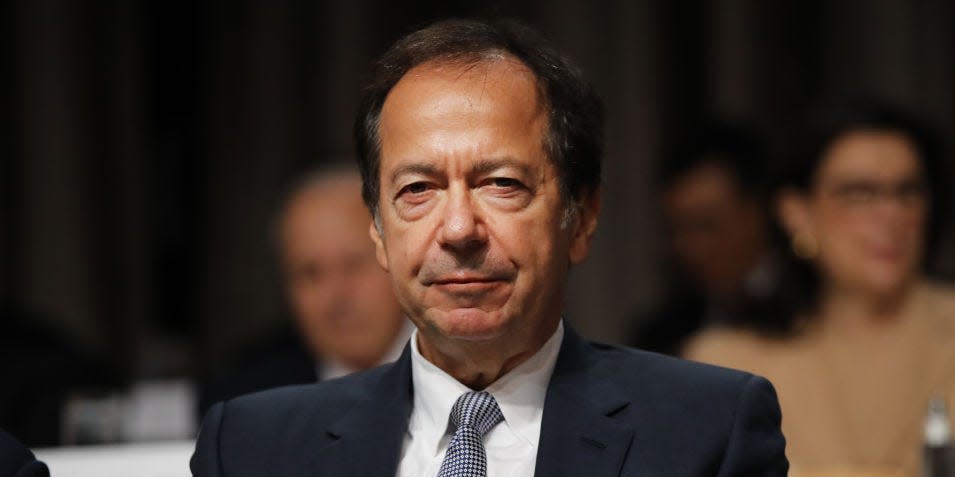Billionaire investor John Paulson warns US house prices could tumble - and touts gold as an inflation hedge

- Oops!Something went wrong.Please try again later.
John Paulson said house prices could drop, but a decline wouldn't spark another financial crisis.
Paulson, who shorted the mid-2000s housing bubble, said there's much less risk in the system today.
The investor criticized some of his fellow short sellers, and touted gold as an inflation hedge.
John Paulson, who called the implosion of the mid-2000s housing bubble, warned US home prices could slump again, but ruled out the decline sparking another financial crisis.
"We're not at risk of a collapse today in the financial system like we were before," he told Bloomberg in a recent interview. "Housing may be a little frothy. So housing prices may come down or they may plateau, but not to the extent it happened."
The billionaire investor and Paulson & Co founder explained that about 15 years ago, the mortgage market and banking system were much less solid than today.
At the time, many Americans could buy homes without undergoing credit checks or making down payments, and often had mediocre credit and lots of personal debt, Paulson said.
Moreover, banks were highly leveraged with capital ratios of about 3%, compared with between 9% and 12% today, he noted. Plus, they were exposed to big risks not disclosed on their balance sheet.
"You don't have the degree of poor credit quality in mortgages that you did at the time," he said. "The banks were very speculative about what they were investing in. They had a lot of risky subprime, high yield, levered loans."
The S&P/Case Shiller index of national home prices has surged by over 40% since the start of 2020, while long-term mortgage rates recently climbed past 6% for the first time since 2008. In other words, US homes have grown more expensive and financing a home purchase has become costlier, creating an affordability problem that could result in a market downturn.
Paulson also took aim at some of his fellow short sellers during the interview. He called them out for hyping up stocks to unwitting retail investors in order to drive up their prices, then stopping the promotion so that the stocks plummeted in value and the sellers' short positions paid off.
The investor pointed to cryptocurrencies, which he dismissed as a worthless bubble last year, as an example of short selling being risky because it has unlimited downside. Investors scoffed when bitcoin hit $20,000 and bet against it, he said, only to watch it more than triple in price to over $60,000 in November.
Paulson predicted last year that stubborn inflation would lead to higher interest rates, spurring investors to ditch cash and bonds for gold. He noted to Bloomberg that the yellow metal has served as a haven asset this year, given its smaller decline relative to stocks and bonds.
Moreover, he suggested gold could jump in value if the Federal Reserve's campaign of interest-rate hikes fails to crush inflation. He argued that investors would lose faith in the central bank and their long-term inflation expectations would rise, boosting demand for the metal as a hedge.
Paulson, who converted his hedge fund into a family office in 2020, shorted about $25 billion of securities during the mid-2000s housing bubble, and scored a $15 billion windfall for his clients. His wager was chronicled in a book titled "The Greatest Trade Ever: The Behind-the-Scenes Story of How John Paulson Defied Wall Street and Made Financial History."
Read the original article on Business Insider

